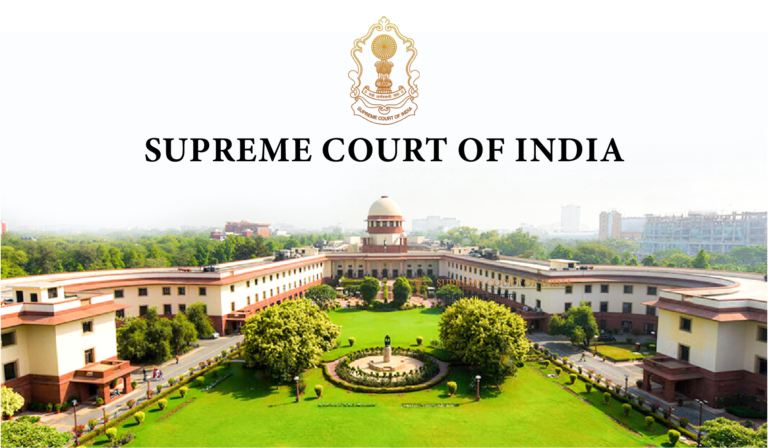Recently, the Supreme Court objected to the trend of seeking bail under the guise of challenging provisions of the Prevention of Money Laundering Act, 2002 (PMLA).
Background
The petitioners in the instant case had challenged the validity of Sections 50 and 63 of the PMLA by way of a writ petition under Article 32. Section 50 of PMLA deals with the power of the Enforcement Directorate to summon any person and record their statement, the statement being admissible in a court of law, while Section 63 of PMLA provides for punishment to a person so summoned for giving false information. The court declared that the constitutionality of the said provisions has already been dealt with in the three-judge bench of Vijay Madanlal judgement and requires no further deliberation.
What is the Vijay Madanlal judgement?
The Vijay Madanlal judgment is a landmark case where the Hon’ble Supreme Court upheld the constitutionality of various provisions of the PMLA. The provisions in question were believed to be antithetical to the rights of the accused and gave the Enforcement Directorate almost unbridled power in matters of arrest, attachment, and search and seizure. For instance, Section 45 requires the fulfilment of twin conditions, such as giving the public prosecutor the opportunity to object to the bail application and the presence of reasonable grounds to prove the innocence of the accused before bail to the accused is given. The petitioners argued that this went against the fundamental principle of “bail is the rule, jail is the exception.” Furthermore, Section 5 of the PMLA allows the Enforcement Directorate to attach the property of the accused even before conviction, while Section 24 imposes the burden of proof on the accused rather than the prosecution.
The court went on to hold all the provisions of the PMLA as intra-vires, and it did so mostly by citing the legislative intent of curbing money laundering as a justification. The judgement drew criticism for undermining the rights of the accused as protected by the Constitution of India under the guise of public policy. The Court used hypertechnical interpretations such as saying “and” under section 3 must be interpreted as “or” to achieve the section’s fullest object or holding that ED officials are not police officials, despite their powers being comparative, so confessions made to them will not be hit by the protection against self-incrimination under the CrPC or Article 20(3) of the Constitution of India. The court justified any variations with provisions under the CrPC by stating that the variations have reasonable nexus with the purpose sought to be achieved through the PMLA.
What is the new trend of seeking bail under the guise of challenging PMLA?
It has been seen in the recent past that under the garb of seeking interim reliefs, which is in a way has been prohibited in view of the judgment of the Vijay Madanlal, and there has been a growing trend of challenging the vires of provisions of PMLA along with seeking consequential reliefs, which would otherwise tantamount to by-passing the other alternative efficacious remedy available under the law. Further, placing reliance on the judgment of Y.Balaji Vs. Karthik Desai & Anr. , the court hoped that this newly developed growing trend would come to a halt. Accordingly, following the observations of the court, the said petition was dismissed as withdrawn.


